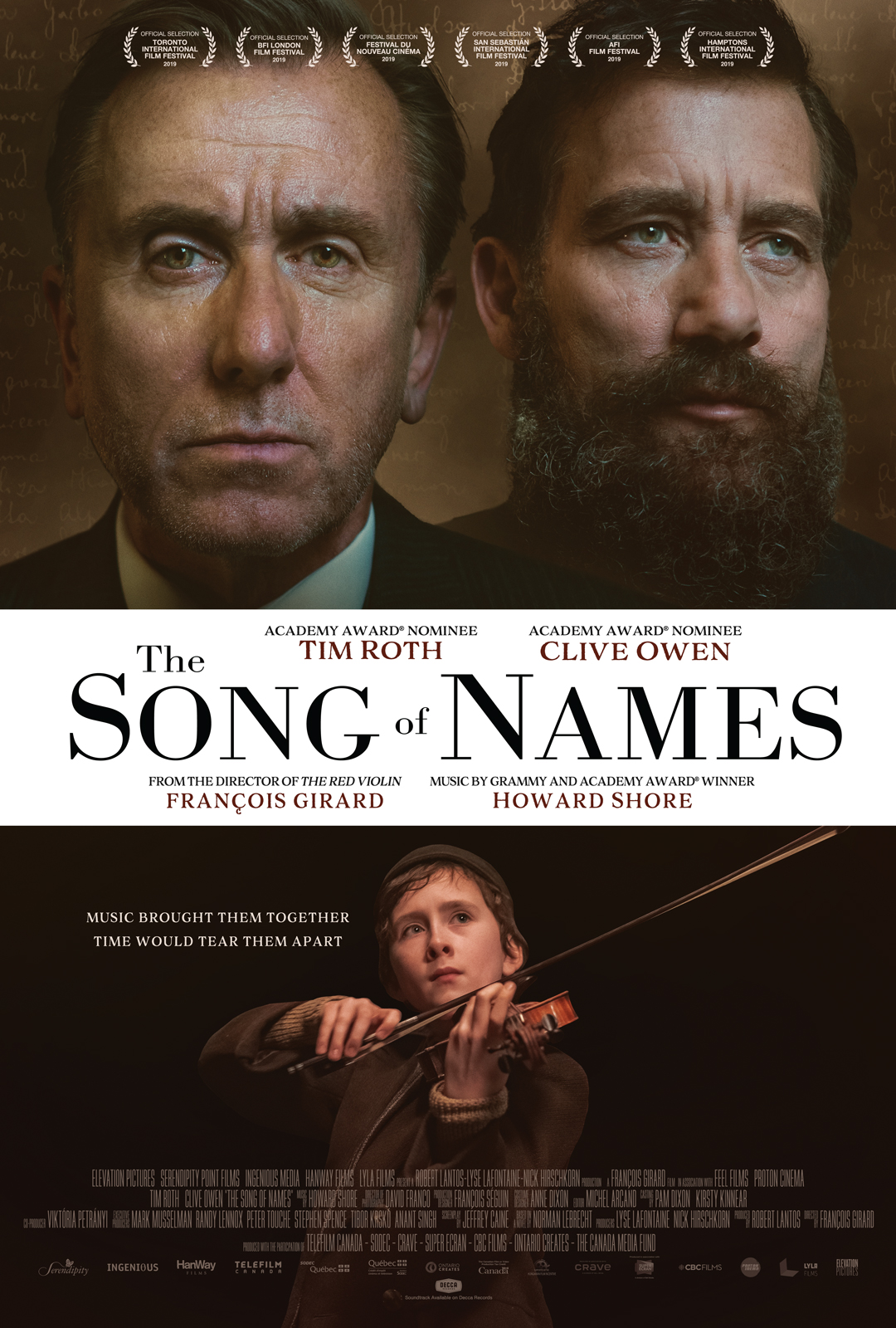
Overall Score
Rating Summary
With The Song of Names, director François Girard, after The Red Violin, goes back to the same instrument for another, though slightly different, WWII drama. Knowing what we do about this sub-genre, the film itself shouldn’t come as much of a surprise but this did not completely derail what was still a gripping film in its own right. This multi-generational tale admittedly takes a little while to get going but is still somewhat compelling to watch until it eventually undercuts all that drama by essentially pulling the rug underneath the audience via a plot twist. At the end of the day, while heartbreaking, its balancing of multiple timelines doesn’t quite work.
The Song of Names follows an English man named Martin (Misha Handley, Gerran Howell, and Roth) as he searches for his long lost musical prodigy adoptive brother, a Polish refuge named Dovidl (Luke Doyle, Hauer-King, and Owen) after he mysteriously disappeared several decades prior. Over the course of the film, as Martin traversed all over Europe looking for any sign of his brother, we were treated to flashbacks of how their relationship came to be. These were the most interesting part of the film as it saw two young boys from different circumstances form an unlikely bond though it certainly didn’t look that way at first. Being taken it with his trusty violin by Martin’s family, he and Dovidl’s close bond would be tested by war and the usual brotherly conflicts.
Martin and Dovidl’s character arcs were compelling to watch but they could have gone deeper. While not groundbreaking by any means, it could have created a better connection between the brothers considering the other subplot relied so heavily on it. As a result, both timelines felt too disconnected from one another, enough to be two different films. Despite this, the later storyline still had its moments. One could more than likely figure out how The Song of Names roughly ends, especially those who have also read the book in which it was based, but it was clear that Martin cared for Dovidl and it was his memories of him which drove him in his journey, going around Europe to the United States. The ultimate truth behind Dovidl’s disappearance and the deep-seeded issues behind it, while sad, undercut most of the emotion it had built up leading to that moment.
For a film that revolved around music, The Song of Names, had a great score. Meanwhile, the beautiful cinematography was also up to the task. In the end, the best part of the film was Roth’s excellent performance as the adult Martin. He carries the film, literally, by creating enough of an emotional connection between his character and the audience to make us care despite the fact that the connection could have been a lot stronger. We certainly feel his pain, however, its understated nature may not be for everyone. Owen was also solid in limited screen time as the adult Dovidl, however, the most impressive performance arguably came from Doyle who was stealing scenes early in the film as the young Dovidl (the character prevalent in most of the film’s promotional material).
At the end of the day, The Song of Names may not stick the landing but is still a gripping drama in its own right whose performances make it well worth the watch.
*still courtesy of Elevation Pictures*
If you liked this, please read our other reviews here and don’t forget to follow us on Twitter or Instagram or like us on Facebook.

The EIC of the coincidentally-named keithlovesmovies.com. A Canadian who prefers to get out of the cold and into the warmth of a movie theatre.
Discover more from
Subscribe to get the latest posts sent to your email.
